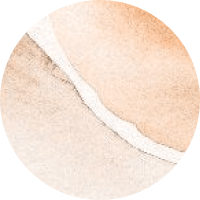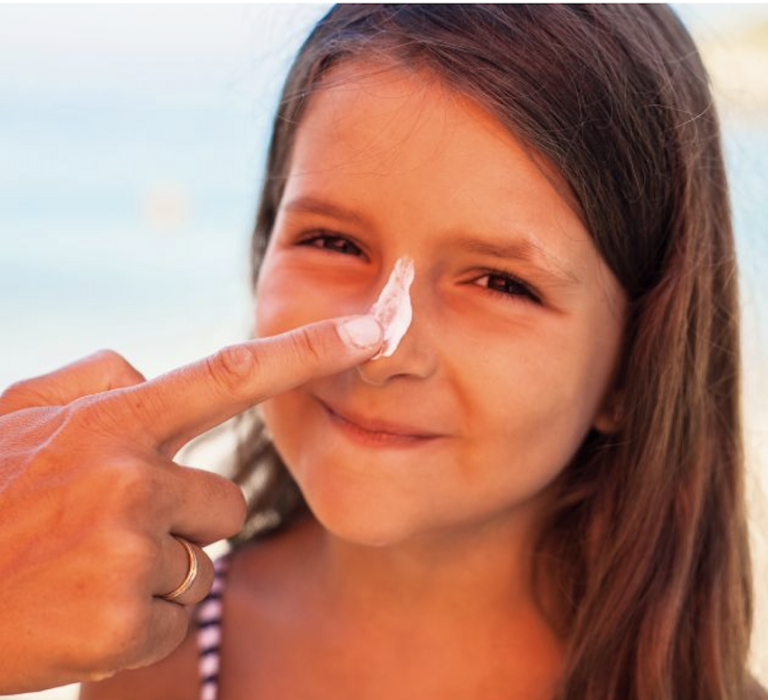Mineral vs Chemical Sunscreen: Explained
With so many sunscreen options available, finding the right one for your skin type can feel overwhelming. From lightweight gels to hydrating creams, sunscreen formulations are as varied as the skin types they cater to. Beyond just the texture and feel, sunscreens also differ in how they protect the skin.
The two main categories, mineral (also known as physical) and chemical sunscreens, work in distinct ways to shield you from the sun’s harmful rays. This guide will break down the differences between these types of sunscreens, helping you choose the one that best fits your needs and skin type.
What to Look for in Sunscreen
When shopping for sunscreen, a few key elements should be at the top of your checklist:
- Broad-Spectrum Protection: Ensures coverage against both UVA (causing aging) and UVB (causing burns) rays.
- SPF30 or Higher: Provides adequate protection for everyday use.
- Water-Resistant Formulas: Ideal for outdoor activities or swimming.
- Ingredients: If you have sensitive skin, consider avoiding certain chemical filters or fragrances.
Skipping sunscreen is never worth the risk. Sun exposure is a leading cause of premature aging, hyperpigmentation, and, most critically, skin cancer. Whether it’s cloudy or sunny, indoors or out, UV rays can still penetrate your skin, causing damage over time. Daily sunscreen use is the easiest way to protect your skin and keep it healthy for years to come!
What is Mineral/Physical Sunscreen?
What is Mineral/Physical Sunscreen?
Mineral sunscreens, also known as physical sunscreens, form a protective barrier on the surface of your skin, reflecting and scattering harmful UV rays away. These sunscreens are typically formulated with zinc oxide and titanium dioxide — two ingredients recognized by the FDA as safe and effective for sun protection. Mineral sunscreens are particularly effective in blocking UVA rays, which cause hyperpigmentation, fine lines, and collagen breakdown.
Modern mineral sunscreens are lightweight, matte, and blend more seamlessly into the skin than ever before. For example, esmi’s Skin Shield Sunscreen is a mineral sunscreen that effectively deflects UVA and UVB rays while being fragrance-free, making it a Favorite among customers.
What Are The Benefits Of Wearing Mineral Sunscreen?
It’s no secret that we have a deep-rooted relationship with the sun—from beach days to barbecues, we thrive under the golden rays. But with strong UVs comes the responsibility of skin protection. Earlier, sunscreens were all about preventing sunburn. But as we’ve evolved, so has our understanding of what truly constitutes effective sun protection. This has led to the popularity of mineral sunscreen. But what makes it the new favourite? Let’s find out.
The Science Behind Mineral Sunscreens
Mineral sunscreens, unlike their chemical counterparts, use natural minerals as their active ingredients. These minerals sit on the skin’s surface and act as a physical barrier, reflecting the sun’s harmful rays. The primary minerals used are zinc oxide and titanium dioxide. They scatter, absorb and reflect the sun’s rays, preventing them from penetrating the skin. Mineral sunscreens are known for their skin-loving properties. They’re especially great for those with sensitive skin.
Why Choose Mineral Over Chemical Sunscreens?
Mineral sunscreens are often referred to as physical sunscreens. They contain natural minerals that sit on the skin’s surface and act as a shield, reflecting and scattering the sun’s rays. On the contrary, chemical sunscreens contain organic (carbon-based) compounds that absorb UV rays, convert them into heat and then release them from the skin. Let’s delve into the reasons why people are leaning towards mineral options:
- Sensitive Skin Friendly: Mineral sunscreens are less likely to cause skin irritations, making them a top choice for those with sensitive skin or allergies.
- Immediate Protection: Unlike chemical sunscreens that require about 20 minutes to become effective, mineral sunscreens work immediately upon application.
- Broad Spectrum: They offer protection against both UVA (ageing) and UVB (burning) rays.
- Environmentally Friendly: Many chemical sunscreens contain ingredients like oxybenzone and octinoxate, which are known to harm coral reefs. Mineral sunscreens are free from these harmful
Debunking Myths: Is Mineral Sunscreen Really Effective?
Mineral sunscreens, despite their growing popularity, are surrounded by a few myths:
- Myth: They Leave a White Residue
While early versions of mineral sunscreens were notorious for leaving a chalky finish, modern formulations have evolved. Today’s mineral sunscreens blend seamlessly into the skin. - Myth: They Aren’t As Effective
Some believe that because mineral sunscreens sit on the skin’s surface, they’re easily rubbed off and less effective. The truth? When applied correctly, they provide robust and long-lasting protection against harmful UV rays. - Myth: They’re Only for Sensitive Skin
While they are a boon for sensitive skin, mineral sunscreens are suitable for all skin types, offering hydration, protection and even anti-ageing benefits.
How To Properly Apply Your Mineral Sunscreen For Maximum Protection
While applying sunscreen may seem simple, there’s a right way to do it.
- Generous Application
Ensure you’re using enough product. A teaspoon for the face and a shot glass amount for the body is a good rule of thumb. - Reapply Regularly
Especially after swimming or sweating. Every two hours is a general guideline.
What Makes SPF 50 Different From SPF 30?
It’s all about the percentage of UVB rays they block. SPF 30 blocks about 97% of UVB rays, while SPF 50 blocks approximately 98%. It might seem like a small difference, but every bit counts when it comes to protecting your skin.
The Environmental Impact: Protecting Oceans And Marine Life
Choosing the right sunscreen isn’t just about personal health; it’s about the health of our planet.
- Reef-Safe: Many sunscreens contain chemicals that harm coral reefs. Mineral sunscreens are reef-safe, ensuring marine life is protected.
- Biodegradable: They break down naturally, reducing pollution in our oceans.
Embrace The Sun With Confidence
When you opt for mineral sunscreen, you’re making a choice that benefits not only your skin but also the environment. For regions where the sun is both a blessing and a challenge, making informed decisions about sun protection is important. So, next time you’re gearing up for a day under the sun, remember the advantages of mineral sunscreen. And if you’re looking for the best in sun protection and aftercare, why not visit our shop to view our full range of products? Contact our team at People4Ocean for more information.
Separating Fact From Fiction: Does Sunscreen Cause Acne?
There’s nothing worse than getting ready to start your day and finding a shiny new pimple in the middle of your forehead.
Sometimes, the causes of acne can feel like a bit of a mystery. There are lots of myths and misconceptions about what actually makes you break out. One common question that many have asked is: does sunscreen cause acne?
In this article, we’ll explore everything you need to know about sunscreen and acne (and some good alternatives for it).
Does Sunscreen Cause Acne?
The quick answer is — yes. Many sunscreens do cause acne by clogging your pores. Among the many myths about sunscreen, this one is (mostly) true.
There are certain types of sunscreens that have chemicals that irritate your skin, which can make you more susceptible to breakouts. These pore-clogging ingredients are what we call comedogenic.
Not only does it clog your pores, but there are other mechanisms of sunscreens that can cause breakouts in other ways. For example, chemical sunscreens absorb UV light into your skin. Your body then converts this into heat, which the body releases.
This can make you sweat more. At the same time, the chemical ingredients in these sunscreens trap sweat in your skin. This can further irritate your skin and cause more acne.
In addition, improper storage can cause the chemicals to break down, leading to more breakouts. If you leave it in a hot car or even in the sun by the pool, this can cause instability in the ingredients.
Is the Sunscreen I’m Using Causing Acne?
Now that you know that sunscreen does clog pores, you’re probably wondering if the sunscreen you use is bad for your skin.
First, it’s important to take a look at the ingredients in your sunscreen. Remember that acne is typically caused by build-up on the skin like oil, dirt, sebum, and more. These ingredients can make the situation worse.
Try to avoid sunscreens with these ingredients:
- Comedogenic Oils and Butters
Many sunscreens contain things like soybean oil, coconut oil, wheat germ oil, and cocoa butter. Even though these are natural ingredients, they do still clog your pores. Some good alternative ingredients to these are rosehip seed, sea buckthorn, grapeseed oils, sunflower, and jojoba. - Mineral Oils and Silicones
These ingredients can trap sweat that is trying to leave your pores. This causes dirt to stay in the pores, causing breakouts. - Benzophenones
These are what help filter UV in many types of sunscreens. Oxybenzone and avobenzone are the most common ones. They can cause skin allergies, leading to more breakouts. - PABA and Other Chemicals
Para-aminobenzoic acid (PABA) is also another known cause of acne. Some other chemicals that can irritate the skin include:- Isopropyl myristate
- Isopropyl isostearate
- Isopropyl neopentanoate
- Decyl oleate
- Myristyl myristate
- Myristyl propionate
- Butyl stearate
- Isopropyl palmitate
- Octyl stearate
- Octyl palmitate
- Peppermint oil or propylene glycol-2 (PPG-2)
- Beeswax and Other Waxes
Beeswax and plant waxes are usually great for the skin. Most skin types are fine when these are applied, but those with very sensitive or acne-prone skin might want to avoid them, as these waxes can also clog the pores.
How to Choose the Best Sunscreen For Your Skin
Here’s the good news: not all sunscreen is bad for your skin. There are many different types of sunscreen with that are important for your skin, including:
- Protecting your skin against harmful UV rays
- Keeping your complexion even
- Helping against premature aging
- Reducing the risk of cancer
Final Thoughts: Finding Your Perfect SP
Choosing the right sunscreen can feel like a daunting task, but with the right information, you can make the best choice for your skin. Whether you lean towards mineral sunscreens for their natural ingredients and immediate protection or opt for chemical sunscreens for their lightweight feel and invisible finish, the key is consistency in application.
Remember, sunscreen is an essential part of any skincare routine, protecting you from harmful rays and keeping your skin healthy and radiant. By understanding the differences, benefits, and potential pitfalls of each type of sunscreen, you can confidently embrace the sun with the knowledge that your skin is well-protected.









